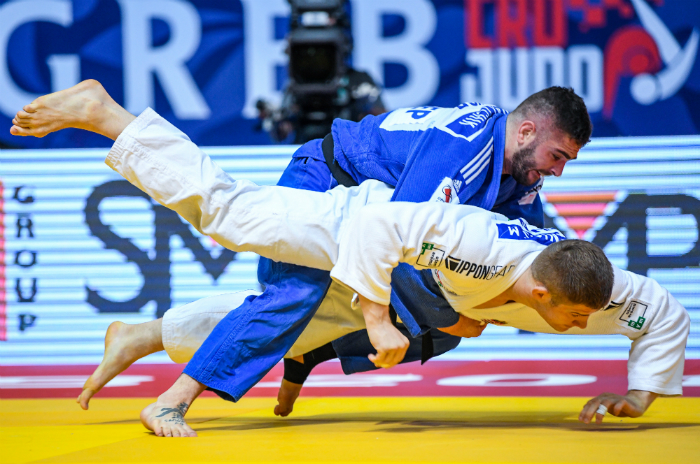The countdown clock for the postponed Judo tournament of the Tokyo Olympics hit 200 days to go on Tuesday.
Japan has never had a lockdown for COVID-19, attempting to juggle the economy and health risks, reports Judo Inside.
It’s nearing deadline time for Tokyo Olympic organizers, the International Olympic Committee, and various Japanese government entities as they try to pull off the Games in the middle of a pandemic.
Officials have promised to announce concrete plans early in the new year about how to get 15,000 Olympic and Paralympic athletes into Japan; about the safety of the Athletes Village, and hundreds of thousands of fans, media, judges, officials, broadcasters and VIPs.
Japanese Prime Minister Yoshihide Suga pledged again to hold the Olympics, saying it would be “proof that people have overcome the coronavirus.” And he said vaccine approval would be speeded up by a month so that vaccinations could begin in February instead of March.
Japanese sports organizations are unsure whether their athletes participating in the Tokyo Olympics should take novel #coronavirus vaccines, with vaccinations seen starting in Japan as early as next spring.@Tokyo2020@ajjf_judohttps://t.co/7VUgusyVVR pic.twitter.com/UPbMqyF7oZ
— Arab News Japan (@ArabNewsjp) December 31, 2020
Any reduction in fans will hit the organizing committee budget.
Tokyo has budgeted $800 million for ticket sales, and any shortfall will have to be made up by government entities, which are footing most of the Olympic bills.
Yoshiro Mori, the president of the organizing committee and a former prime minister indicated the opening ceremony, scheduled for July 23, could be troublesome with thousands of athletes and officials gathering to parade around the stadium.
Television determines much of the Olympic scheduling, and selling broadcast rights accounts for 73% of the IOC’s income. Another 18% is from large sponsors.
The torch relay, which begins on March 25, will also face crowding with 10,000 runners expected across almost four months.



